ADSactly Philosophy - Miguel de Unamuno and the otherness
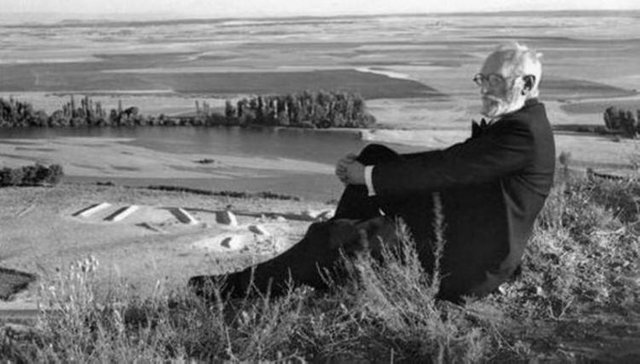
Miguel de Unamuno and the otherness
Otherness or alterity ("the condition of being another", according to dictionaries) is one of the themes of interest of contemporary times in philosophy and literature. However, the concern for it can be traced back to the nineteenth and twentieth centuries. It can be identified in Miguel de Unamuno (1864-1936), a fundamental author of Spanish-language letters, but with universal resonance. He was a novelist, philosopher, essayist, poet, chronicler and university professor, a career that led him to become Rector of the University of Salamanca. He was a member of the group of writers that promoted the renewal of Spanish literature known as Generation of 98. His extensive work includes books such as Niebla, Del sentimiento trágico de la vida, La tía Tula, La agonía de Cristianismo, Cómo se hace una novela, or his renowned poem "El Cristo de Velásquez", among others. Very famous is his phrase "Venceréis, pero no convéis", said in his last speech as Rector of the University of Salamanca (because he was later dismissed) before the arrogance of the fascist general Millán-Astray, who had interrupted Unamuno's speech, with the cry: "The intellectuals die".
In the following essay I deal with the presence of this theme in Unamuno's work. I hope it may be of interest to you.

The enlightened French poet of A season in hell, Arthur Rimbaud, expressed in his Letter from the seer: "I am another"; a phrase that seems to signify his leap into the void and his poetic alienation. And Antonio Machado, the Spanish poet of time and existential reflection, in his metaphysical sense of life, has left us expressions like this: "Being is eagerness to be what he is not". Machado spoke of the "essential heterogeneity of being" and of "the incurable otherness that the one suffers".
Nietzsche, Rilke, Heidegger, Artaud, Bataille, Borges, Pessoa, Blanchot, Paz, Juarroz... Extensive is the list of thinkers and creators who have lived the inner experience of otherness or have reflected and written about it or from it. Octavio Paz wrote suggestive meditations on this subject. I pick up here one of the clearest: "Experience made from the fabric of our daily acts, otherness is first and foremost simultaneous perception that we are others without ceasing to be what we are.
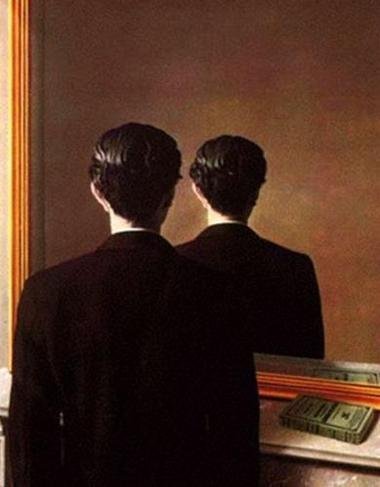
A reading of a large part of Miguel de Unamuno's work can be assumed, trying to perceive this transcendent aspect. From such a perspective, otherness will acquire very particular nuances. It will cease to be presented simply as personal unfolding, to reach the persistent confusion - in the best sense of the word - of idea and life, reality and fiction, form and content, showing, in turn, a disturbing and playful conception in Unamuno. Throughout his work you will find traits that can be inscribed in that line of attention or can be linked to it in various ways. I will try to point out some of these features in the Basque writer's books.
In his book Del sentimiento trágico de la vida, Unamuno writes intense reflections on man and existence. In this book, published in 1912, we can begin to identify that sense, which will accompany him in several of his works. I will cite some revealing phrases of such restlessness:
(...) I want to be myself and, without ceasing to be so, also to be the others (...)
And if it is painful to have to stop being one day, it would perhaps be more painful to continue always being oneself, and not more than oneself, without being able to be at the same time another (...)
(...) in me live several selves, and even the selves of those with whom I live.
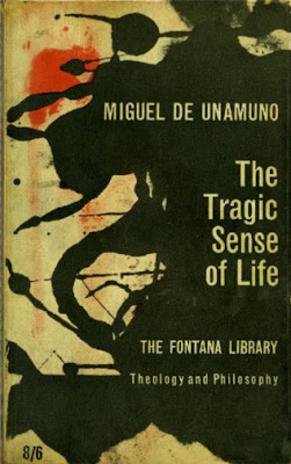
There is in these expressions a sense of need for the Other. The Other is lack and desire to be. And it is the yearning, the hunger to be, that will lead Unamuno to formulate his hunger for God. Here we find a capital aspect in Unamuno's work, one of the most attractive: the idea of God.
Within the reading or vision that I try to outline, God appears to Unamuno as "the great Other", as the desired, desired Being - and according to Lacanian theses, "the desire is the desire of the Other". God is the eternal, and therefore the eternalizing. Here is the question.
But this unfolding seems to have another fold, its double: man, humanity is the Other of God. God is eternalized by humanity. Let us see in a very light synthesis the approach -or the scream- of Unamuno, which has its resonances in later works.
In the first place, God creates the world, thinks about it, dreams about it. The world is God's dream. God is the Author of us. We are, therefore, his creatures, his dream beings, his characters.
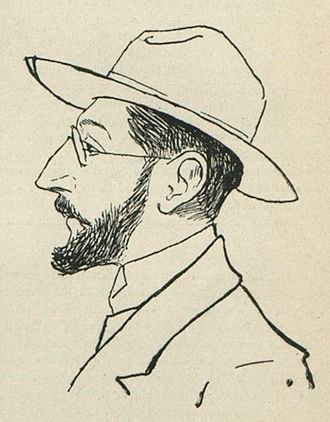
Secondly, God is the Universal Consciousness, composed by us, who are his dream. And every dream is a struggle, it is sustained by the opposition between the dreamed and the dreamer - as Ferrater Mora points out. Without such opposition the dream of this one would vanish. Dreamer of the world, God is, in turn, dreamed by the world. In the words of Unamuno himself:
(...) Are we not ideas of that Great Total Consciousness which, when we think of ourselves as existing, gives us existence?
(...) to believe in God is, in a certain way, to create Him, even though He believes us before. It is He who continually creates Himself in us.
Otherness, as I have indicated before, does not only appear in Unamuno as a vital position. It is also form and content. This sense of otherness can be found, subtly or openly, in his novels, or in his dreams.
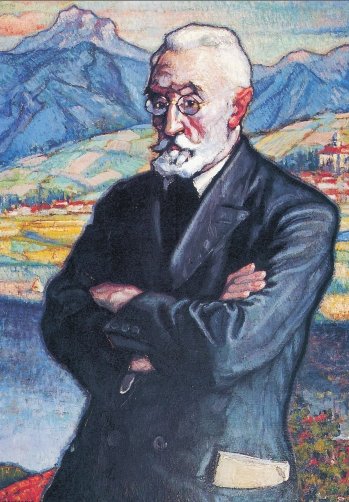
Unamuno expresses in its singular text How to write a novel (which could be addressed later, if there was interest in the readers of this post):
Every novel, every work of fiction (...), when it is alive is autobiographical. Every fictional being, every character [...] created by an author is part of the author himself.
(...) we authors create ourselves in all the characters (...) we create.
The characters, the fiction entities are constituted in the other of the author, and this one, in such a way, as God thought by Unamuno, creates himself; in that becoming, he becomes another. About this idea, the novelist Ernesto Sábato manifested in an opportunity:
(...) the life of a novelistic character (...) allows the author to mysteriously live other destinies, other lives and to realize anxieties infinitely restrained by his conscience or unconsciousness.
Indeed, the author unfolds into his own mystery, as in dreams, where, emerging from ourselves, beings give us back their difference, the unknown and ungraspable.
Bibliographic references
Ferrater Mora, José (1957). Unamuno. Outline of a philosophy. Argentina: Edit. Suramericana.
Paz, Octavio (1973). The bow and the lyre. México: Fondo de Cultura Económica.
Unamuno, Miguel de (1973). Of the tragic feeling of life. Argentina: Edit. Losada.
Unamuno, Miguel de (1978). How to make a novel. Spain: Edit. Alianza.
http://www.cervantesvirtual.com/descargaPdf/confesiones-de-un-escritor
Authored by @josemalavem
Click on the coin to join our Discord Chat

Witness proposal is here:
Go To Steem Witness Page
In the bottom of the page type: adsactly-witness and press vote.

Use small letters and no "@" sign. Or, click here to vote directly!
Thank you!
A reflection of the philosophy of life. In the view of existentialism, of course you don't think I think, so I am. Or it may be that my understanding kills, then I am. When thinking that we consciously claim we are a product of God, we recognize God as the creator, as the author of his work in the form of beings. the world and all its contents are the work of God. In each of his works, he is always pure, there are divine attributes, all-compassion, all-creative and all characteristics that exist. In human beings created by the will and the word of God, the nature of the seizure will be included.
Likewise if you think of the existence of God because we think about it. When we think that God exists, everything is made up of our minds and thoughts. In this case we will enter into the understanding that God is our creation. We make the existence of God.
however, to achieve this understanding must also be careful because it can cause human misfortune.
Beyond that, you have managed to attract the attention of readers to understand the philosophers developed by Unamuno.
Thank you @josemalavem
Thank you @adsactly
Thank you Steemit
Warm regard from Indonesia
Do you, friend @rokhani, some interesting reflections from the thoughts of Unamuno that I collect in my article. They seem very valid to me. I do not assume in the work an attitude of commitment or personal satisfaction with the thought of Unamuno (beyond that I have some position on the matter), but I am interested in probing into the depth and complexity of the philosophical and literary reflections of this important author. Grateful for his comment. Greetings.
It is really an interesting idea, but it is so true. "To believe in God is, in a certain way, to create Him, even though He believes us before. It is He who continuously creates Himself in us. "
I appreciate your reading, @ginafraser. Indeed, it is a conception not theological, but from the philosophical and aesthetic point of view, very interesting.
Excellent work, of course, with very good examples and very well illustrated. I believe that every writer, especially the writer of narrative and poetry, plays at being God. He has the capacity to be another, different from me: to unfold between pages. The same happens with readers, who, like in a fractionated mirror, look at themselves multiplied. From Unamuno I remember with special pleasure La Tía Tula and Niebla. I haven't read How to Write a Novel, but I'm sure I'd like to read the work you point out. Thank you for sharing this work, @josemalavem
I appreciate your reading and assessment, @nancybriti. In Unamuno's thought there is a rich interaction between author and reader, which he resembles the relationship God-creature, which is what appears in novels like Fog and How to make a novel. I think I will soon publish the second part of this work. Greetings.
The theme of otherness in Unamuno is one of the most interesting topics of his thought (for me it is so) and this is difficult to consider in a thought that had the ability to reason always by an alternate way and to see unprecedented senses in its reality.
Rimbaud's phrase has been leit motiv from my theoretical readings on representation and imagination, as well as the theme of realization through some other (or otherness, and not necessarily human). When I found myself working with a professor who was well versed in these matters, French translator Luis Miguel Isava, warned me about Rimbaud's phrase that a more accurate Spanish translation would be: Yo es otro, which would undoubtedly extend its meaning to other implications.
As you well point out, a long list of notable authors have internalized otherness in their works. However, for me, someone who explores the limits of this subject is Juan Carlos Onetti, in his novel La vida breve, and in general in all of his novels grouped under the label Ciclo de Santa María, where the otherness that Brausen becomes, through Díaz grey and Arce, his two vicars, one that he makes from a cinematographic script and the other in which he becomes, both as forms of certain perversions, they construct alterity as imaginary acts that reach their peak in the realization, in the plane of reality, of the town of Santa María, with its streets, traditions, stories, heroes, people and miseries.
Undoubtedly a great theme to explore from Unamuno and from a whole constellation of universal thinkers and artists.
Thank you, @josemalavem, for sharing this text and @adsactly for publishing it.
Hello, dear @adncabrera. I appreciate your valuation
and your enriching comment. Certainly, otherness is a broad and complex issue that will continue to give possibilities to be approached from different points of view and subjects. In literature it is an open field. What you say about Onetti's novel is extremely interesting.
As for Rimbaud's phrase, "I am another" was translated for a long time, but the most accurate translation is "I is another" (even if grammatically erroneous) , and that "other" need not be limited to a human being.
Thank you for your visit. Greetings.
Good
Posted using Partiko Android
Is their a book where Unamuno fleshes out his conception of God?
Hello, @oryans.belt. *Of the tragic feeling of life is one of the books where Unamuno addresses this complex subject, but from philosophy and literature, not from theology, of course. Unamuno was a writer with a very controversial conception on various topics, including on belief, faith, God, and so on. He has books such as La agonía del cristianismo (philosophical essay) and San Manuel bueno martir (novel), among others, where he treats him in his own way. Greetings.